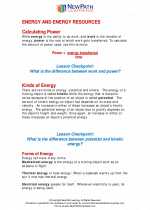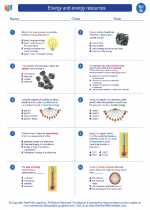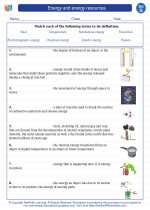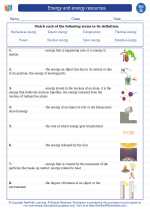Effect
In science, the term "effect" refers to the result or consequence of a particular action, event, or process. It is an important concept in various scientific disciplines, including physics, chemistry, biology, and environmental science.
Types of Effects
There are different types of effects that are studied in science:
- Direct Effect: This refers to the immediate and observable consequence of a specific cause. For example, when a force is applied to an object, the direct effect is the resulting change in its motion or position.
- Indirect Effect: Sometimes, the impact of a cause may not be immediately apparent and may manifest through a series of intermediate steps. This is known as an indirect effect. An example of this is the indirect effect of human activities on climate change.
- Positive Effect: When an action or event leads to a beneficial outcome, it is considered to have a positive effect. For instance, the use of fertilizers can have a positive effect on plant growth.
- Negative Effect: Conversely, if an action or event results in a detrimental consequence, it is referred to as a negative effect. Pollution from industrial activities has negative effects on the environment and human health.
- Side Effect: This refers to an unintended or unexpected result of a particular action or process. In medicine, side effects of a drug may include symptoms that are not the primary purpose of the treatment.
Studying Effects in Science
Understanding and studying effects is crucial in scientific research and experimentation. Here are some key points to consider when studying effects in science:
- Cause and Effect Relationships: Scientists often investigate the cause and effect relationships to understand how different variables or factors influence outcomes. This involves designing experiments to establish causal connections.
- Data Analysis: Analyzing data and observations is essential to identify and quantify the effects of various phenomena. Statistical analysis is commonly used to determine the significance of observed effects.
- Controlled Experiments: In many cases, scientists conduct controlled experiments to isolate specific variables and observe their effects under controlled conditions. This helps in establishing cause and effect relationships more accurately.
- Modeling and Predictions: Scientists often use mathematical models and simulations to predict the potential effects of certain actions or events. This is particularly important in fields such as climate science and environmental impact assessments.
Study Guide
If you are studying the concept of "effect" in science, here are some key points to focus on:
- Define the term "effect" and provide examples of different types of effects.
- Discuss the importance of studying cause and effect relationships in scientific research.
- Explain how controlled experiments are used to investigate the effects of specific variables.
- Describe the process of analyzing data to identify and quantify effects in scientific studies.
- Explore real-world examples of positive and negative effects of human activities on the environment.
- Discuss the concept of side effects in the context of medicine and other fields.
By understanding the concept of "effect" and its significance in scientific inquiry, you will be better equipped to analyze and interpret the outcomes of various phenomena in the natural world.






